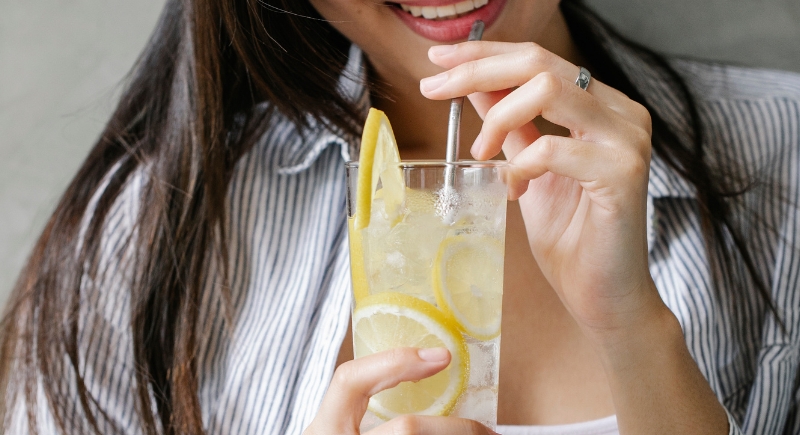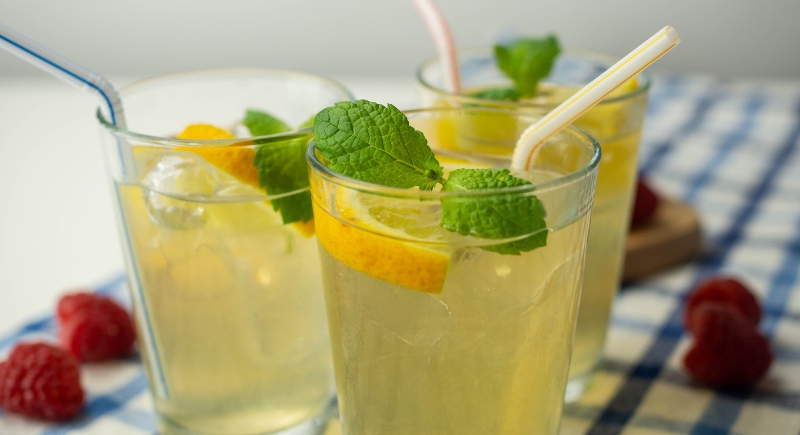Why Lemonade Tastes Better in the Summer Than Any Other Time?
Sure, any cold drink feels refreshing on a blazing summer day; that much is obvious. Iced tea, cold soda, and chilled water all provide that immediate temperature relief your overheated body craves. But isn’t it puzzling that lemonade specifically tastes dramatically better in summer than it does in winter, spring, or fall? Why doesn’t iced tea have the same seasonal transformation? Why doesn’t cold soda suddenly become irresistible when July hits?
The science behind this is far more fascinating than you might expect.
Your Body’s Summer Survival Mode

Image via Canva/Satjawat Boontanataweepol’s Images
When temperatures soar, your body launches into survival mode with remarkable precision. Blood vessels dilate to release heat, sweat glands work overtime, and your mouth begins producing less saliva to conserve precious water reserves.
This biological response creates what researchers call “thermal stress,” and it’s exactly why that glass of lemonade becomes so irresistible.
The Sour Power Revolution
Research dating back to Japanese studies in the 1960s revealed that sour tastes trigger salivary glands more powerfully than sweet, salty, bitter, or savory flavors. When that tart lemon hits your dry mouth, it jump-starts your body’s natural hydration response.
This salivation response explains why acidic drinks wet the mouth and give the impression of hydration even after your lemonade or vinegar water is finished. The relief lingers because your mouth remembers that flood of saliva and creates a lasting sense of refreshment that pure water simply can’t match.
Temperature Meets Chemistry

Image via Pexels/Sarah Chai
Acidity alone doesn’t explain the temptation. The beverage’s cold temperature amplifies the entire experience.
Colder temperatures can enhance the perception of sweetness and reduce the intensity of bitterness, which means that a perfectly balanced sweet-tart flavor profile hits different when it’s ice-cold.
When you drink cold lemonade, the immediate cooling sensation in your mouth and throat creates a perception of relief that registers instantly with your brain.
While this doesn’t actually reduce your body’s sweat production or core temperature regulation, it provides powerful psychological cooling that makes you feel more comfortable in the heat.
The Perfect Hydration Formula
Traditional lemonade is an engineered hydration solution. The classic ratio of roughly four parts water to one part lemon juice and one part sugar creates a drink that’s approximately 80% water while delivering rapid energy and electrolyte balance.
That sugar content helps your body absorb water more efficiently through a process called co-transport. The vitamin C from fresh lemons provides nutritional value, though it plays a secondary role in the immediate refreshment experience. The primary benefits come from the hydration and the specific way acidic flavors interact with your heat-stressed mouth.
The Psychology of Summer Relief

Image via Getty Images/Foto Storm
Beyond the biological responses, lemonade taps into powerful psychological associations with relief and comfort. The bright yellow color signals freshness and energy to your brain before you even take a sip.
The familiar preparation ritual of squeezing lemons, stirring in sugar, and adding ice creates anticipation that primes your body for satisfaction.
During the 1918 flu pandemic, a collective of California citrus growers (known as Sunkist) decided that the refreshing taste of lemon could spur the infirm to drink more fluids, since taste can be a powerful motivator for proper hydration.
The Seasonal Specificity Factor
In cooler months, your body doesn’t experience the same level of thermal stress, your mouth produces adequate saliva, and that immediate relief response isn’t as pronounced or necessary.
Acidity masks less refreshing flavors, like sweetness, which means in summer’s heat, lemonade’s tartness cuts through the heaviness that might make other sweet drinks feel cloying or overwhelming. When you’re already feeling sluggish from the heat, the last thing you want is a drink that makes you feel heavier.
The Smart Way to Enjoy Summer’s Best

Image via Pexels/Mateusz Feliksik
The sugar content in lemonade—especially commercial versions—can be substantial enough to potentially counteract hydration benefits if consumed in large quantities.
This makes it essential to treat lemonade as a targeted refreshment tool rather than an all-day beverage. Use it strategically when you’re genuinely overheated and need that specific combination of rapid hydration, salivation response, and psychological cooling that only comes from cold, tart, sweet satisfaction.